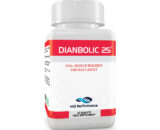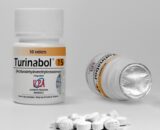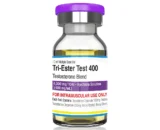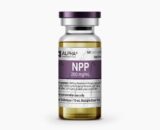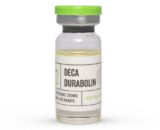Subtotal: $800.00
- Home
- FAQs
FAQs
Q1.HOW LONG DO STEROIDS TAKE TO WORK?
Q2.HOW ARE STEROIDS TAKEN?
Q3.WHAT IS THE NORMAL DOSAGE?
Q4. HOW LONG SHOULD I BE ON STEROID TREATMENT FOR?
Q5. WHY YOU SHOULD NOT SUDDENLY STOP TAKING STEROIDS?
Q6. WILL I NEED TO TAKE ANY SPECIAL PRECAUTIONS WHILE BEING TREATED WITH STEROIDS?
Q7.DO STEROIDS AFFECT FERTILITY AND PREGNANCY?
Q1.HOW LONG DO STEROIDS TAKE TO WORK?
Oral steroids normally improve symptoms within one to four weeks, while intravenous steroids take four to 10 days. Around one in five people shows no response to steroid treatment (this is known as being steroid refractory). If your condition is not improving, contact your IBD team.
There are many reasons why steroids may not work including people not taking them as prescribed and genetic differences. It could also be that your symptoms are not caused by active IBD, but by a separate problem, such as underlying infections (Cytomegalovirus, Clostridium difficile), or another condition, such as irritable bowel syndrome (IBS) or lactose intolerance. If your symptoms are definitely being caused by inflammation, but are not responding to steroids, then your IBD team might suggest alternative treatments, such as biologic therapy or an immunosuppressant.
Q2.HOW ARE STEROIDS TAKEN?
There are several different types and formulations of steroids allowing these drugs to be taken in a variety of ways. The choice depends on the location of your IBD and severity of symptoms.
Most commonly steroids are taken as tablets by mouth (orally). If your condition allows, oral steroids should be taken in the morning. This helps to reduce side effects and is less likely to affect your sleep. Budesonide tablets and granules, as well as any delayed release or enteric coated steroids, should be swallowed whole with a glass of water and taken around half an hour before food. This is important because chewing can destroy the way the drug is delivered.
For severe flare-ups steroids are given intravenously (injected into a vein) to achieve the quickest response. This only takes place in hospital. You will then be switched to oral steroids
For IBD affecting the lower part of the colon and rectum, steroids can be given as topical treatments that apply drugs directly to an affected area by enemas or suppositories. Enemas use a specially designed applicator (containing the drug as a liquid or foam) that is inserted into the anus (back passage) and reaches into the colon. Suppositories are small ‘bullet-like’ capsules of drug inserted into the rectum via the anus. One of the main advantages of topical treatments is their ability to directly target inflamed area. This means other parts of the body are not so affected, reducing side effects
Q3.WHAT IS THE NORMAL DOSAGE?
Your Muscle gain masters team will advise you on the correct dose depending on the type of steroid prescribed, your condition and weight. For prednisolone, for example, people are usually started on 40 mgs (eight tablets a day) taken as a single dose in the morning. But there can be considerable variations in doses prescribed. Talk to your IBD team before making any changes to your dose or how you take it.
People with severe flare-ups admitted to hospital normally receive methyl-prednisolone 60 mg over 24 hours or four infusions of hydrocortisone (100 mgs each dose) every day. Higher doses offer no greater benefits, but lower doses have been shown to be less effective.
Q4. HOW LONG SHOULD I BE ON STEROID TREATMENT FOR?
Steroids should ideally only be used for a short period of time to get over a flare-up or while long term treatments, such as azathioprine, become established.
If you are starting a course of steroids, then you should complete the full reducing course, which is generally prescribed for eight weeks. You should NOT stop on your own accord even if you are feeling better. If you have been using steroids for more than a few weeks (or a week in the case of prednisone 40 mg per day or more) you will need to gradually reduce the dose before stopping completely.
sodales, ut pretium augue placerat. Vestibulum nulla tellus, faucibus sed nunc a, suscipit suscipit ante. Nunc vitae nisl ac risus accumsan blandit eget sit amet odio. Mauris dolor magna, tempor at mollis ac, porta non erat.
Ut at finibus sem, quis volutpat nibh. Pellentesque id eleifend felis. Aliquam erat volutpat. Sed in enim urna. Morbi luctus suscipit ante non hendrerit. Donec euismod mollis libero, eu consectetur sem consequat ac. Aliquam aliquam nulla non justo condimentum fringilla. Suspendisse in justo id nunc molestie varius non nec lacus.
Q5. WHY YOU SHOULD NOT SUDDENLY STOP TAKING STEROIDS?
For steroid treatments lasting longer than a few days, it is VERY important not to miss a dose, and to only stop treatment under medical supervision. This is because after some days or weeks of taking steroids your body stops making enough of its own steroids to maintain important functions (such as blood pressure). A sudden withdrawal from medication may cause a sharp fall in blood pressure and affect blood sugar levels. You will need to – ‘taper’(gradually reduce) the dose to give your adrenal glands time to start making their own steroids again.
Generally, people will not need to ‘taper’ if they have taken steroids for less than three weeks, but you should always consult your IBD team before stopping treatment.
Unfortunately, sometimes when people reduce the dose of steroids their IBD symptoms return (known as steroid dependence). If this happens you can be offered other drugs, such as azathioprine, to help you come off steroids completely.
Q6. WILL I NEED TO TAKE ANY SPECIAL PRECAUTIONS WHILE BEING TREATED WITH STEROIDS?
If you take a course of steroids you may be given a blue ‘steroid card’ providing details of the prescriber, drug, dosage and duration of treatment. This should be carried with you at all times and given to any health professional treating you. If you were to become unconscious health staff would immediately be aware your steroid treatment needed to be continued and that the dose might need to be increased temporarily
If you become ill, require surgery or have an infection, the dose of steroids may need to be increased. This is because your body needs more steroids when exposed to physical stress. Your body’s requirement for extra steroids when unwell can persist for many months after a course of steroid treatment, especially if the course is prolonged or has to be repeated
Because steroids damp down your immune response, you should avoid people with chickenpox, shingles and measles. You could become seriously ill from these conditions. Tell your doctor promptly if you have come into contact with anyone who has these conditions as you may be able to have a protective injection
Also, even mild infections, such as a cold or sore throat, may develop into a more serious illness. Contact your doctor if you have not been able to shake off an infection
Q7.DO STEROIDS AFFECT FERTILITY AND PREGNANCY?
Tell your doctor if you are thinking of becoming pregnant or find you are pregnant, and you are taking steroids. Because they are effective treatment, many experts now feel steroids can be taken during pregnancy as there may be a greater risk to the baby if the woman does not take effective treatment and is unwell from her IBD. Studies suggest active IBD at the time of conception and delivery may increase adverse outcomes, including spontaneous abortion and pre-term delivery, making it important to have effective treatment for active IBD.
Guidelines consider steroids taken during pregnancy to be of low risk to babies. While steroids can cross the placenta to reach the baby they rapidly become converted to less active chemicals.
Experts prefer prednisone, prednisolone, and methylprednisolone since they are more efficiently broken down by the placenta than dexamethasone or betamethasone. Maternal prednisolone doses of up to 40 mg daily are considered unlikely to affect the baby.
While some studies have shown a small increase in the risk of cleft lip and palate in babies born to women taking steroids in the first three months of pregnancy, other studies have not reported this finding. Palate formation is complete by week 12 so there are no risks of cleft lip and/or palate after this. Less is known about budesonide, but a small study of eight pregnant women did not find an increased risk of adverse outcomes.
There have been isolated reports of babies born with adrenal suppression when mothers took steroids late in pregnancy. So if you are taking steroids at the time of delivery be sure to let your health care team know as your baby may need a tapering course of steroids after birth.
In women taking steroids for other conditions (not IBD), an increase in maternal pregnancy complications (such as high blood pressure and diabetes) have occasionally been seen.
Still Question?
Fill the form to ask you more questions, our suppoters will respone as soon as possible.

